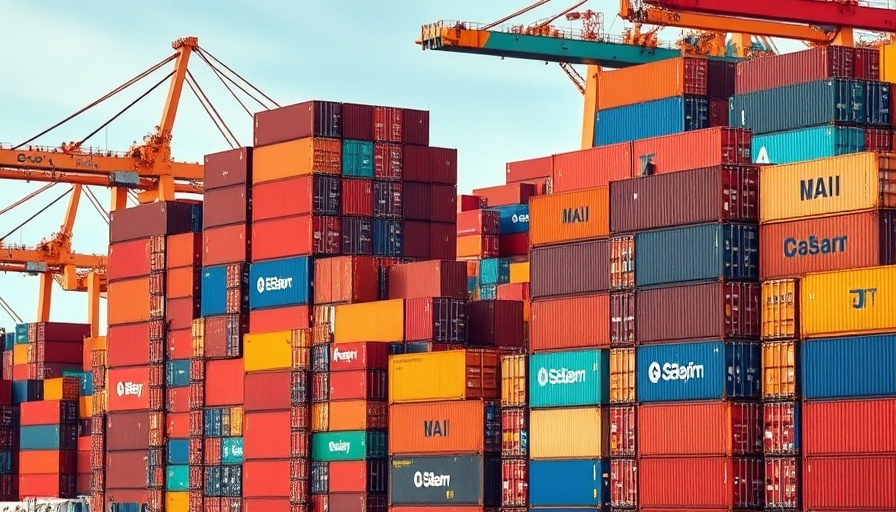
The Impact of Tariff-Triggered Demand Slumps on US Trade
The U.S. import and export landscape is experiencing a significant shift due to the long-term effects of tariffs initiated during the Trump administration. As demand for goods declines, ports and air freight services are now facing unprecedented challenges. This slump emphasizes the need for import/export companies to assess their strategies and adapt to a rapidly changing economic environment.
Understanding the Tariffs and Their Long-Lasting Consequences
When tariffs were first implemented, many businesses struggled to understand their immediate impact, but the ripple effects are now evident. Inflationary pressures, coupled with the reduced demand for imports, have made it increasingly difficult for U.S. ports to maintain efficient operations. This situation has produced delays and rising costs, further complicating trade activities. Import/export companies are now tasked with navigating these challenges as they seek alternative strategies to mitigate financial losses.
Relevant Current Events Shaping the Import/Export Landscape
The fluctuations in demand are not solely rooted in tariffs; they are exacerbated by broader economic factors, including supply chain issues and evolving consumer preferences. As the global economy continues to recover and adapt following the COVID-19 pandemic, it has triggered shifts in how businesses operate. Import/export companies must remain nimble, taking into account market conditions and consumer behavior to ensure they thrive amid uncertainty.
Adapting Strategies to Navigate Trade Complexity
For businesses involved in import and export, reevaluating operational models is paramount. This might mean diversifying supply chain partners or investing in technology that enhances logistics efficiency. Companies also need to keep abreast of regulatory changes and potential new tariffs that could arise, particularly as global political relations evolve.
The Financial Insights You Need to Succeed
Knowledge is key in overcoming current hurdles in the import/export sector. Understanding trends, from tariffs to shifts in demand, can empower companies to make informed decisions. Keeping a pulse on these dynamics is critical for companies to not only survive but to identify potential growth areas amidst adversity.
Taking Action: Steps Towards Resilience
It's crucial for all businesses engaged in international trade to take proactive steps in response to these economic challenges. Companies should develop contingency plans, focus on enhancing relationships with reliable partners, and invest in learning opportunities to ensure they’re not only equipped to face these challenges but are also positioned for future success.
By staying informed about the evolving trade landscape, import/export companies can become more resilient and prepared for whatever changes lie ahead. For those looking to adapt and innovate, seeking out financial insights could be the key to navigating these turbulent times effectively.
 Add Row
Add Row  Add
Add 




Write A Comment